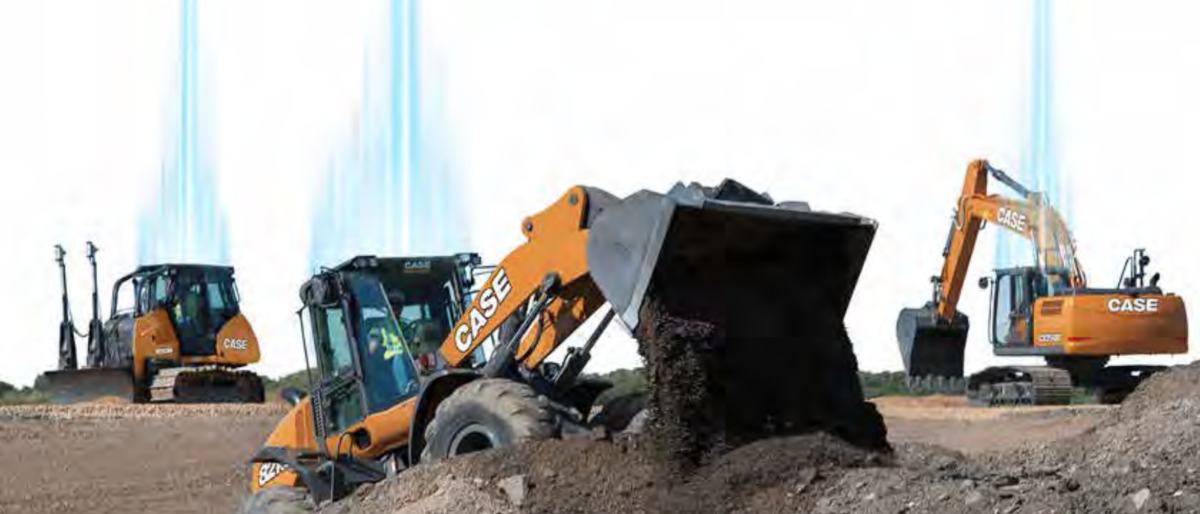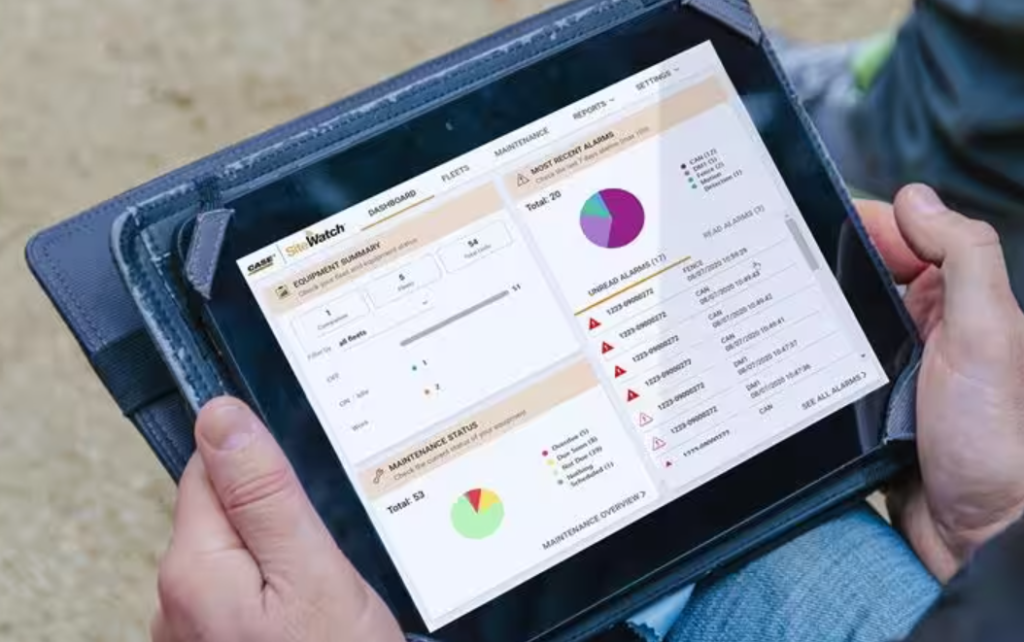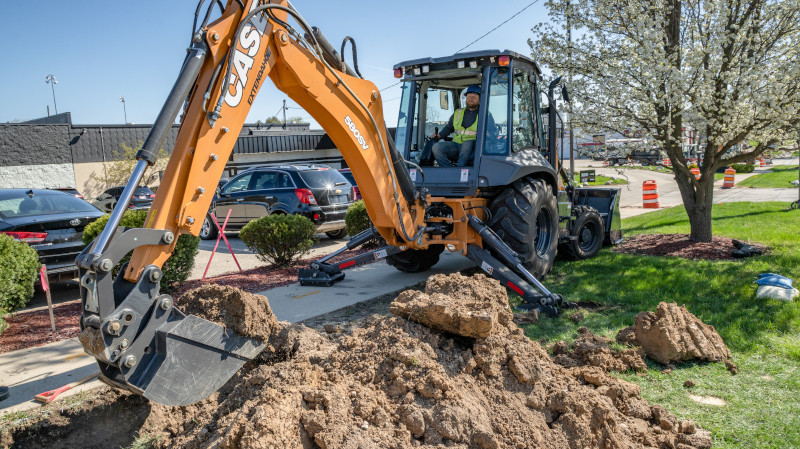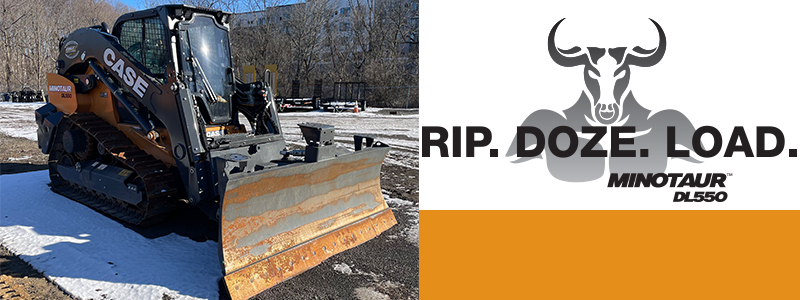Blog

The Future of Construction: How Technology is Revolutionizing Heavy Equipment
October 30, 2023The world of heavy construction equipment is currently undergoing a remarkable transformation, and technology is changing the game in ways that affect not only those in the construction industry but everyone directly or indirectly involved with heavy equipment design and operation.
From autonomous machinery that improves efficiency to smart sensors that enhance safety, the new face of the modern construction industry is all about precision, performance, and productivity. With equipment becoming smarter and more efficient, it’s clear that technology is the driving force behind this revolution.
What Are the Key Technological Advancements in Heavy Equipment Design?
When we talk about technology revolutionizing heavy equipment design and operation, it’s essential to dive deeper into the specifics. So, let’s explore the key technological advancements that are shaping the industry right now.
First off, automation is at the forefront of these changes. Heavy machinery is getting smarter, with autonomous systems that can perform tasks with precision and efficiency. This means less room for human error and more consistent results. Whether it’s excavators, bulldozers, or cranes, the integration of AI and automation is a game-changer.
But it doesn’t stop there. Telematics, a blend of telecommunications and informatics, is another critical aspect of modern heavy equipment. These systems allow real-time monitoring of machinery, providing data on everything from fuel consumption to maintenance needs. This not only maximizes equipment uptime but also helps in predictive maintenance, reducing costly breakdowns.
CASE’s SiteWatch System and KubotaNow Telematics are two examples of telematics systems that play a crucial role in the development of modern construction equipment. Telematics, in general, is the integration of telecommunications and informatics to remotely monitor and manage various aspects of heavy machinery. What benefits do they offer?
- Enhanced Equipment Performance: Telematics systems like CASE’s SiteWatch and KubotaNow Telematics provide real-time data on machine performance. This data includes information on engine health, fuel consumption, and equipment usage. By monitoring these metrics, manufacturers can identify areas for improvement and design more efficient equipment. For example, if they notice that a particular machine consumes more fuel than expected, they can work on optimizing the engine for greater fuel efficiency.
- Predictive Maintenance: Telematics systems enable predictive maintenance, a critical aspect of modern construction equipment. By continuously monitoring the condition of various components, such as engines, hydraulic systems, and electrical systems, manufacturers can predict when maintenance is needed. This allows for proactive maintenance to prevent costly breakdowns and downtime. Equipment designed with this in mind benefits construction companies by reducing maintenance costs and maximizing uptime.
- Safety and Operator Efficiency: Telematics systems offer features such as remote monitoring, GPS tracking, and smart sensors. These elements improve safety and operator efficiency. Manufacturers can design equipment with built-in safety features, such as collision avoidance systems or alerts for dangerous operating conditions. In turn, this ensures that the equipment not only gets the job done but does so safely, protecting both operators and construction sites.
- Customer Insights and Feedback: Telematics systems also serve as valuable tools for gathering customer insights and feedback. Manufacturers can collect data on how their equipment is used in the real world. This information helps in the development of future products that better cater to the needs and preferences of construction companies. By understanding how their equipment performs on various job sites, manufacturers can make informed design decisions for future models.

Telematics systems like CASE’s SiteWatch System and KubotaNow Telematics are pivotal in the development of modern construction equipment. They provide data that leads to more efficient, safer, and reliable machinery. By analyzing the information collected through these systems, manufacturers can continuously innovate and improve their equipment, ensuring it meets the evolving needs of the construction industry.
How Do These Technological Advancements Impact Construction Operations?
First and foremost, these advancements lead to increased efficiency. Smart equipment and automation mean that tasks can often be completed faster and more accurately, reducing project timelines and labor costs. Construction companies can take on more projects and be sure to deliver them on schedule.
Additionally, technology enhances safety on the construction site. Smart sensors and cameras provide real-time feedback, alerting operators to potential hazards. Autonomous systems may eventually reduce the risk of accidents caused by human error. In today’s construction industry, the focus remains not only on getting the job done, but also keeping everyone safe while doing it.
Moreover, data collected through telematics can have a significant impact on decision-making. Project managers can analyze machine performance and usage to optimize resource allocation. This results in better resource management, reduced downtime, and ultimately, higher profitability for construction businesses.
So, the bottom line is that these technological advancements are not just about the machines themselves; they are transforming construction operations from the ground up. Efficiency, safety, and data-driven decision-making will make construction projects smarter and more successful.
What Can We Expect from Heavy Equipment Technology in the Near Future?
One of the exciting prospects is the continued development of remote operation. With the advancement of 5G technology and the Internet of Things (IoT), it’s likely that we’ll see more equipment operators working from a distance. This not only enhances safety but also allows for a more flexible workforce.
On the sustainability front, we can anticipate even more electric and hybrid options. With increasing pressure to reduce carbon emissions, heavy equipment manufacturers are investing in cleaner alternatives. This not only benefits the environment but also helps construction companies meet stricter regulatory standards.
Furthermore, artificial intelligence will play a more significant role in heavy equipment. AI can improve predictive maintenance further, reducing downtime, and increasing efficiency. Additionally, AI-driven software can enhance equipment utilization and suggest optimal routes, reducing fuel consumption.
The future of heavy equipment technology holds exciting possibilities. Remote operation, sustainability, and AI integration are just a few of the trends we can look forward to in the years to come. The construction industry is on the brink of even more remarkable transformations, and staying informed about these developments will be key to future success.
If you’re in the construction industry or an affiliated business, it definitely pays to regularly follow industry news, attend trade shows, and keep track of new tech as it starts appearing on the worksite. Technology evolves fast, so staying up to date ensures you can harness these innovations to your advantage and be part of the exciting future in heavy construction. Your commitment to staying informed can make all the difference in your professional journey.
Do you require the best quality construction equipment for your next project? Contact us now to discover why Eagle Power & Equipment is your one-stop shop for everything related to construction equipment sales, rentals, maintenance, and repairs.











